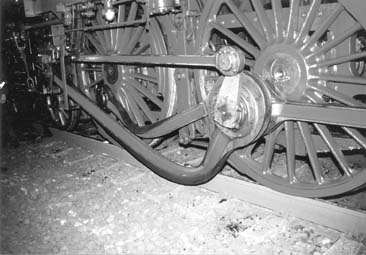Well, also we had to consider:
Fuel needs air to burn. Diesels and gasoline engines 'draw' their air,. Common gasoline engines do at the first downward motion of the piston, and aspirate their combustion air.
In Diesels they found, that only aspirating isn't worth, to successfully burn the fuel economically, so the turbo diesels made the game. Here the exhaust gas turbine propells the air compressor in the aspiration tubes and pumps air into the space of the cylinder, to maximize air volume in the cylinder.
So to burn gasoline, much concrete air fuel mixture has to be ensured, and also it's very dangerous to fire that as an open flame, but it can be done.
Done by gasoline evaporation, air mix nozzles and secondary air cooled burners.... usually those burners are difficult to handle and difficult to operate, because a high risk of flash overs during burner shut down or burner starting processes. Not realy a good ideal, also if the tank has a problem, you run around with a several kilo ton bomb behind you, ready to explode and shoot your tail right to the moon. That's much more dangerous than the boiler in front....
Also, steam engines aspirate their air by the blow pipe, or so called exhaust ejector. If the engine is on idle, the fireman had to power on the fresh steam ejector, to ensure a good draft... consider: The fireman has to start the ejector, before the driver will shut the throttle and go to idle. If any failure happens, you got the best flash over in the cab you ever seen, because the burners where at full power and to shut them down will require a time.
Dangerous...
So how to ensure the best combustion air mass to the combustion area by only ejector and exhaust steam? Impossible.... if you burn such a high value fuel, you have to ensure a complete combustion, and this means a full control of the air flow for combustion.
That's why modern natural gas heatings have electronical air flow control.
So also gasoline is a fuel, usually for internal combustion engines. In heatings, and a boiler is only a form of high pressure heating, fuel is used for heating purposes and not to generate high torque power... os it has to burn, rather than to explode.

So a less valueable fuel can be used, and can be fixed to a complete smokeless combustion. This is natural oil, like sunflower or rape oil, also coconut oils can be used. Usually a common diesel relative for heating purposes is used.
This burns well, has a high heat value and isn't that dangerous to operate and handle like more value fuels.
The power isn't only depending on the fue used, it's more depending on the fuel can be used and completely burned, smokeless combustion is the goal. And if you can ensure such a good combustion, you can get awesome power out of a boiler....
Well those tiny rods... are very massive constructions, able to widstand all the force from the piston power... but look what happens if the main bearing get's stuck:

Allways keep two-thrid level in gauge and a well set fire, that's how the engineer likes a fireman
